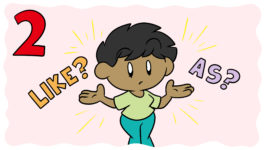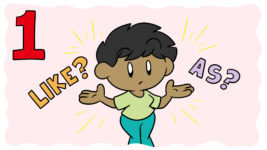If conflict is the lifeblood of a story, the protagonist’s goal is its compass. A story about a person without a goal wanders aimlessly through page after page and will likely leave readers scratching their heads, wondering what the story they just read was all about. Your prose may be flawless, your plot points exhilarating, your dialogue gripping, but without the compass of purpose to guide you, these elements stand alone, struggling to come together into a meaningful whole.
Not sure if your character has a goal? Below I’ll look at three ways a protagonist’s goal guides other elements of the story and how each one can be a clue to honing a protagonist’s uncertain purpose.
A quick definition
I want to start out by defining what I mean by a protagonist’s goal or purpose. Sometimes those terms can sound grand and sweeping, but let me simplify it for you. What we really mean by goal or purpose is: What does your protagonist want? It can be something epic like taking over a kingdom or winning the competition of the century or something more internal like wanting to reconnect with estranged family or get a date to the prom.
1. A goal guides plot
Maybe the most obvious way a protagonist’s goal guides the story is through the plot. A friend asks you, “What’s your book about?” If you know what your protagonist wants, it’s easy to summarize how he or she goes about getting that thing. If you’re not sure, though, you may end up listing a series of thrilling events strung together into a story. Step back and try to look at your story objectively: is it guided by a discernible journey your protagonist takes to get the thing he wants most or is it a series of events without a clear and cohesive trajectory?
Let’s look at an example to illustrate this idea. I like to think of J.R.R. Tolkien’s The Fellowship of the Ring, the first book in The Lord of the Rings trilogy. There is a large cast of characters, a handful of subplots, tons of worldbuilding and intricate details of the fictional world to get caught up in, but at the heart of the story lies Frodo Baggins who is tasked with the job of carrying the One Ring out of the Shire, eventually on to Mordor to be destroyed. That is his one goal, and the plot points that drive the action of the story are guided by that goal.
So how about you? When you look at the action of your story, can you see that it’s guided by your protagonist’s goal or do you find a meandering trail of unrelated events? By identifying what your character wants, you can set him or her on a path to pursuing that thing. Whether the character succeeds or fails, you’ll be on your way to writing a cohesive and compelling plot arc.
2. A goal guides character
Have you ever had a problem getting a character to really come alive on the page for you? You’re not sure what their character arc looks like and you can’t figure out why. There are many reasons this happens, but a common one is that this character lacks a driving goal or desire. It is the striving of our characters that brings them up against obstacles that change them. If they don’t have some guiding purpose, how can they change over time? That trying and succeeding or trying and failing is the fuel of a powerful character arc.
Back to Frodo. The hobbit is a reluctant hero. Curious about the world outside the Shire, he starts down the road with some sense of adventure, like his uncle before him. But along the journey, despite the wondrous places he visits and other races he meets, Frodo realizes that all he ever needs is right there at home. But if he’s to complete his task of getting the One Ring to Mordor, he may never be able to see the Shire again.
Can you see how Frodo’s goal was the catalyst for his internal change? The lessons he learns about himself are inside him all along, but it’s the pressures of fulfilling his goal that unveils those insights. So, ask yourself again: “What does my protagonist want?” If you’re not sure, dig a little deeper. Look at all the things you already know about this character and extrapolate from there. Desire usually comes from passion; if you can identify what this character is most passionate about, you’ll be on your way to knowing what he desires most and to what lengths he would go to get it. And it’s in the striving to get what he wants most that you’ll see his transformation.
3. A goal guides conflict
Are you struggling to know what comes next in your story? If your protagonist doesn’t know what she wants or how to go about getting it, it’s tough to maintain a consistent sense of conflict in your story. When your characters are driven by purpose, their daily lives and interactions fall into place and the objects, people, and forces that stand in their way create a delicious sense of conflict. Without this compass of the goal to guide your character, the obstacles they face are arbitrary and fall short of creating a compelling conflict that can carry the whole scope of the story.
There are many individual conflicts for Frodo along his winding road to Mordor, but every force or person that opposes him is in one way or another trying to stop him carrying the One Ring to Mordor. There’s no rogue conflict coming out of left field that doesn’t somehow tie into the main story conflict: Can good overcome the evil of the One Ring once and for all in Middle Earth?
What conflict lies at the heart of your story? Can you see one definitive struggle there or are there many interesting but unrelated small conflicts that you’re relying on to get you through? If you’re missing that sense of cohesion, start with your protagonist, figure out what he or she wants most, set them on the road to achieving it, and watch the conflicts naturally stack up against them.
So what?
So what’s the big deal if you do find that all this time you’ve been writing a thrilling story that doesn’t revolve around the protagonist’s goal? Well, by now I hope you can see that all the intricate moving parts of a story rely on a main purpose to guide and direct them, to help them from wandering aimlessly in a narrative wilderness. But more importantly, I think of this as a question of art imitating life; do we as human beings wander through our days without any sort of guiding force to inform our actions? No, we are inexplicably driven by desire in some way or another; and, unlike any other force in our lives, it’s that sense of purpose that writes the twists and turns of our unfolding stories. That’s why we read isn’t it? To learn, to grow, to be entertained by that familiar but altogether novel sense of our own dramas played out on the pages. Don’t do your book and your characters the disservice of fumbling around without a purpose. Dig a little deeper, find out what your characters want most in all the world, and then help them go about getting it, or failing to get it.
How has working with your character’s goal helped strengthen your book? What other ways have you noticed the element of character purpose informing your story?






8 thoughts on “Why Your Characters Need To Have A Goal”
Giving characters goals is good advice, albeit genre dependent. From a personal perspective, I always give my characters goals, but that’s because I write action-adventure and as you point out, the plots don’t really work without them. I like to think of character goals as the gears the gears and linkages that animate the plot. Or, in a meta-sense, the goal is for story to arrive at a satisfactory conclusion through the actions of the author’s surogate, the is, the main character.
On the other hand, the linkage between goals and character development may not exist. It’s not uncommon for main characters in comedy and mystery to not develop in the slightest over the course of the story. (I am thinking Jeeves and Wooster, as well as Hercule Poirot as examples.)
Hi Fritz,
Thanks for your comment; I think your gears analogy is especially helpful. I agree that plot-driven stories do tend to put character development on the back burner, and some neglect it altogether. In most cases, though, I find that strong characters who grow over time make a story memorable and compelling, and not necessarily at the expense of the story’s plot.
Wonderful article, Paige.
I always think about this, but sometimes I can’t find a precise purpose with some famous main characters…
Take “Fight Club”. What would you tell about him?
Hi boostwriter,
I’m so glad you found this article helpful. You make a great point that sometimes main characters don’t seem to have a specific goal. Unfortunately, I haven’t read Fight Club, so I can’t comment on that particular story, but I can speak to your point in more general terms. I think it’s true that not all characters have a definable goal. This in itself might be part of their characterization–sometimes it’s precisely the point that a person doesn’t know what they want, and the plot unfolds accordingly. Sometimes the lack of a goal or driving purpose in a story is the author’s attempt to explore more existential themes and questions. And then sometimes a book’s central story may be so plot-driven that it doesn’t concern itself much with character goals. I tend to be drawn to stories whose characters have more defined goals, as it fuels the character arc, but there are certainly strong and entertaining stories out there whose characters essentially serve the movements of the plot. What do you think?
You didn’t read “Fight Club”?! Do it 😉
“Sometimes the lack of a goal or driving purpose in a story is the author’s attempt to explore more existential themes and questions. And then sometimes a book’s central story may be so plot-driven that it doesn’t concern itself much with character goals…”
It’s exactly what I think about “Fight Club”.
Haha, okay. I’ll have to add it to my reading list!
How has working with your character’s goal helped strengthen your book?
My writing has gone through three stages. I started off using a gut feeling and my general knowledge of how a story went. It needed to feel right. I was good at that but if something was wrong I did not have the skills I do now, to correct it. Then I focused on plotting skills and my work had a good structure but I was struggling to use my other skills. I planned too much and depleted my characters, although my settings remained strong. There was a flat quality and lack of force and emotion that I had to tackle. My third stage has been to develop character with plot. I start off with a sketchier plot outline and tie the character goals into the plot. The characters have more power to shape the story and both the characters and plot become richer as I write. When something happens I ask myself how each character feels about it and what action he or she would take. Character goals guide these decisions. I am very aware of the plot phase of my story and when to make the situation messy and when to sort out the problems. A firm grasp on character goals allows me to develop an emotional response to what is happening. My work is now more balanced and alive. I had to master the skills of plotting before I could let go enough to work how I do now.
What other ways have you noticed the element of character purpose informing your story?
It allows me to become that character and think as that character and see him or her from other characters’ viewpoints. The character purposes need to clash and I need to see that from inside different heads. It ties in with motivation and with the world values I have created.
Hi Rosamund,
Thanks so much for your detailed answers – it sounds like you’ve really worked at your craft and are seeing the benefits.
Best wishes,
Rob